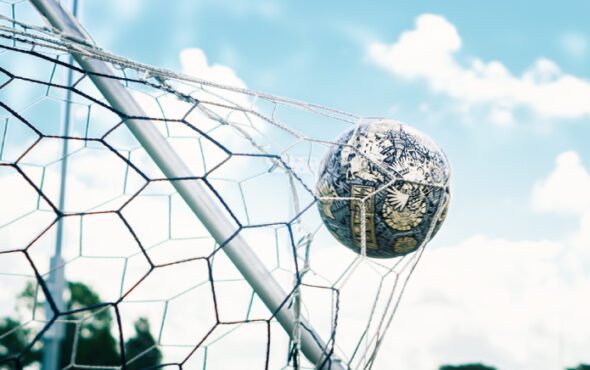
Stonewall has launched its ninth Rainbow Laces campaign by urging people to “stand up and call out” anti-LGBTQ+ discrimination at the World Cup in Qatar.
The tournament has been marred with controversy since it was announced that it would take place in the Gulf state, where homosexuality is illegal and the LGBTQ+ community is subjected to discriminatory laws.
“As we approach the 2022 Men’s World Cup, we must remember that Qatar is a country where LGBTQ+ people are persecuted simply for being themselves,” said Liz Ward, the Director of Programmes at Stonewall.
“Sadly, this year’s tournament is not safe for everyone, which is why it’s so important to see players and fans stand up to be counted.
“The World Cup is a vital moment for the global sporting community to stand up and call out the criminalisation and persecution of LGBTQ+ people in Qatar.”
The charity’s Rainbow Laces campaign, which runs from 19 to 31 October, aims to highlight these issues as the sporting tournament nears.
Rainbow Laces Day will occur on 26 October, a day when sports participants are encouraged to wear rainbow laces on their shoes to promote inclusivity.
New research from ICM/Walnut and Stonewall shows that the number of sports fans who think homophobic remarks are acceptable in sport has almost halved over the last five years (25% in 2017 to 14% in 2022).
Although Stonewall said it is proud of how far things have come in sport, it acknowledged that there is still a long way to go.
Despite this progress, we know that many LGBTQ+ people still feel unwelcome in sport.
➡️Only 40% of fans think competitive sport is welcoming for gay and bi men
➡️43% think it's welcoming for lesbian and bi women
➡️Just 29% think it's welcoming for trans athletes— Stonewall (@stonewalluk) October 19, 2022
Just 40% of LGBTQ+ people say competitive sport is welcoming for gay and bisexual men, with 43% believing this to be the case for lesbian and bisexual women, the aforementioned research found.
Only 29% of respondents think competitive sport is welcoming for transgender sport personalities.
“Since the beginning of the Rainbow Laces campaign, we’ve seen awareness grow and grow, with more than one million laces modelled in boots across the world’s pitches and, as a result, we’ve seen attitudes fundamentally shift – the majority of Britons are now supportive of LGBTQ+ athletes,” Ward added.
“However, we cannot become complacent. This new research shows that the public recognise that there is more work to do to create a world where LGBTQ+ people are free to be themselves both on and off the pitch.”



